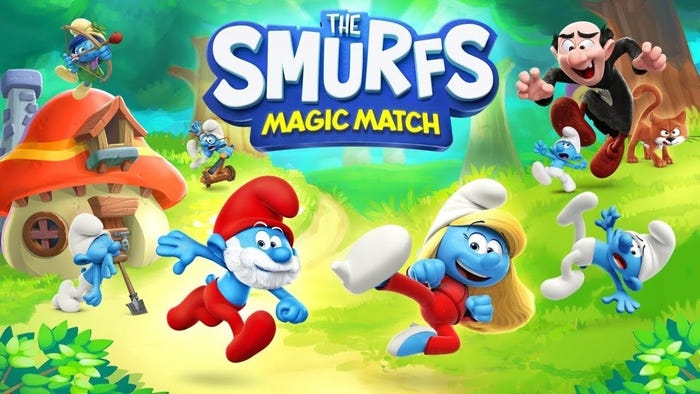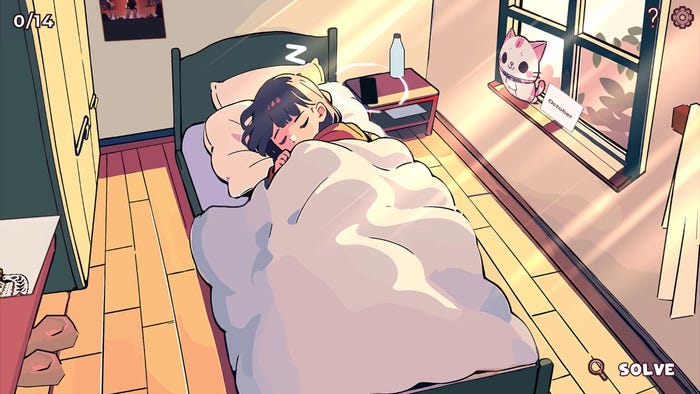
Featured Blog | This community-written post highlights the best of what the game industry has to offer. Read more like it on the Game Developer Blogs.
Indie Business Development: Finding Funding - Part 1 (Incubators and Grants)
How do you find funding while developing your game? Especially if your current game is your first title. This post is a general primer on finding funding and, by laying out potential options, will enable you to choose the method is best for you.

For better or worse, most indie developers don't come from a business background. We just want to make games and in a perfect world we wouldn't have to worry about the financial aspects of it. Because that's one of the scariest things about being an indie dev: the financial challenges and risks.
Why is this important?
As an indie dev, not only do you need to make the game, but you also need to find some way to obtain funding for yourself and your team during development. We don't have a marketing team though. We don't have a legal team. We don't have a business development team. We need to do all of this work ourselves in addition to developing the game. And it's scary as all hell when you have no experience in it.
However, terrifying as it may be, we'd be stupid to completely ignore the business development side of being indie, especially when it comes to funding. Yes, we want to create the game of our dreams, but this needs to be tempered with the reality of indie game development and of running a company.
The Main Methods of Funding
So then how do you get funding? Especially when you may not have a shipped title to lend you credibility. Talking with various indies, I've compiled the main methods for gaining funding and keeping a roof over your head.
1. Business Incubators
2. Grants
3. Friends and Family
4. Contract Work
5. Finding a publisher
6. Crowdfunding
It's important to keep in mind that everyone's situation is different and what works for one dev may not work for another. In all likelihood, you'll need to employ some kind of combination of the above that best fits your team. Hopefully this post will act as a general primer on finding funding and, by laying out potential options, will enable you to choose the method(s) that are best for you. In this post however, I'll only be covering Business Incubators and Grants with other methods covered in later posts.
Business Incubators
A business incubator is an entity that seeks to help out startup businesses by providing them with funding and guidance. Generally, incubators receive their funding from investors. Applicants then pitch their company and their idea to the incubator who then selects which team they decide to take on, acting as a sort of middle man between the investors and the startup. The incubator does not make any money themselves unless the team starts generating profit, at which point they may start charging for rent or take a percentage of the profits.
The Main Draw
The greatest draw of an incubator is the support network it can provide. In addition to monetary funds, most incubators will subsidize travel and/or tickets to conferences, give you access to mentors, and help you with the routine business aspects of running your own company. Johan Toresson, a business developer at Blekinge Business Incubator's game incubator Gameport, says, "There's, at least not here at Gameport, nothing that'll stop you from Kickstarting your game - the difference is that after you've succeeded (or not succeeded), you'll have a huge network of knowledge at your disposal."
The Application Process
When you pitch to an incubator, keep in mind that sometimes business incubators take on teams because they believe the team has promise, not necessarily because they believe in the idea. So pitch not only your idea, but your team and company as well. You may have the best idea in the world, but it means nothing if the team behind it can't execute it.
Do your research when preparing to pitch. The pitching process is much like a job interview, so gather information on exactly whom you'll be meeting. What is their personality? Are they familiar with games and the game industry? Based on this information, how should you build your pitch? Johan's advice in this regard is, "You're creative, so be creative. Show me what you do in an interesting way, but make sure not to forget the parts that actually show you know a bit about what you’re getting into. You don’t need to have a perfect business plan and a budget – but a preliminary of each shows me that you’ve been thinking about how to stay on top of the business side as well."
What are they looking for?
As Johan touched on, a solid, well thought out business plan is a great thing to present. Unless you or a team member come from a business background, the plan probably won't be very feasible. However, incubators know that you may not have money or the business knowledge just yet, but putting time into researching and developing a business plan shows initiative, determination, and a willingness to learn. Through it, you can showcase an awareness of your weaknesses and how you plan on addressing them.
In your business plan, an incubator may also want you to write a statement of purpose detailing how you believe they can help. With this, they will want to determine if you’ll benefit from being a part of the program and whether or not you’re coachable.
Showcase your non-monetary capital when pitching. Whether it’s your idea, the team, or a strong fanbase already in place, show that you have traction. If you're ready to pitch, you probably have a playable demo and one way to show traction are player testimonials from that demo. Joe Albrethsen of Mura Interactive recommends to "playtest your game with as many people as you can and get them to write their thoughts about it. Any way you can show there is an audience for what you are making builds confidence in the mind of an investor." The key here is to give evidence of your past (and thus potential) success that is demonstrable or quantifiable. That evidence can be showcased in various ways, whether it's a demo, number of Facebook likes, or previous awards your team has won.
Grants
The simplest definition of a grant is funding that you don't have to pay back. Finding one is simply a process of doing some Google-Fu. The team at Clockwork Demon advises to apply to as many as possible: state, federal, technology grants, art grants, etc. If you live in the U.S., a good place to start are Small Business Innovation Research (SBIR) grants. They're the most applicable to startup game studios and are given out by many different government entities. How much a grant provides and its specific terms vary from grant to grant, so make sure that you know the details of any that you accept.
The Application Process
The process for applying for a grant is fairly similar to applying for a spot in an incubator. Once again, you are pitching your idea and your team. With grants, it's likely that you'll be talking to people who may not understand games and come from a different, more business geared background. It might benefit your team to designate a specific person who is more comfortable in reaching out to people to act as the spokesperson for your game as you research different grants.
Because you’re speaking to people who may not be as game savvy, you especially have to research your potential investors. What are their goals? What is mission of the grant? How do their goals and mission coincide with yours? Creating and pitching a win-win situation in which everyone gets what they want, may help to gain that grant.
What are they looking for?
Once again, have a well thought out business plan. This is even more important with a grant than it is with an incubator, since the audience to whom you’ll be pitching will more likely come from a corporate background with little experience in games. However, like business incubators, they also understand that your plan will probably become obsolete once you start development, so showcase your confidence as well as adaptability.
Hard data and statistics are difficult to argue with and are another great thing to have in your pitch. Statistics and demographics are ways you can show traction and prove that your idea is solid. In order to prove to investors that narrative games who posed meaningful questions were in demand, Clockwork Demon cited statistics on how many gamers were female, the success of narrative driven games like Gone Home, sales data on games similar to theirs, etc. Statistics are objective so if you can use them to back up your arguments, you’ve got a pretty solid argument.
If you’re applying for an entrepreneurial grant, your potential investors will likely want to see you trying to solve problems. What is the problem you’re trying to solve and how will you solve it? What are your differentiators, the thing that makes you or your game different from anybody else trying to solve this problem? This was the hardest problem that Clockwork Demon faced and one that you’ll need to answer. Before pitching, be able to answer those questions and have your response integrated into your business plan.
Working with Your Financier
Whatever route you decide to choose, know that your financier will be highly involved with your development cycle. Kellee Santiago, head of developer relations at Ouya, states that, "Whoever gives you funding is going to be a member of your team, so make sure they share the same ideals as you." Many indies echo this with Leo Glass of Clockwork Demon adding in that, "There are a lot more people who are willing to give you money than you think, so find an informed investor. Someone who knows what you’re doing and believes in what you do. Confidence, fidelity, and trust are hard to get, not money.”
Helpful Links and Resources
Here are some more links to specific incubators and grants I’ve learned about during my research. Sadly, most of my links only apply to U.S. indies. If you know of any other helpful links related to business incubators and grants, post a comment and let me know!
Incubators
Grants
Thank you to Johan Toresson, Kellee Santiago, Joe Albrethsen, Andrea Benjamin, and the entire Clockwork Demon team for taking the time out of their schedule and talking to me. This article couldn't have been written without your advice. :) Another thanks to everyone I bugged to proofread this. If there's anything else you'd like to see in the future or if I made a factual error, please post a comment and let me know!
Read more about:
Featured BlogsAbout the Author(s)
You May Also Like









